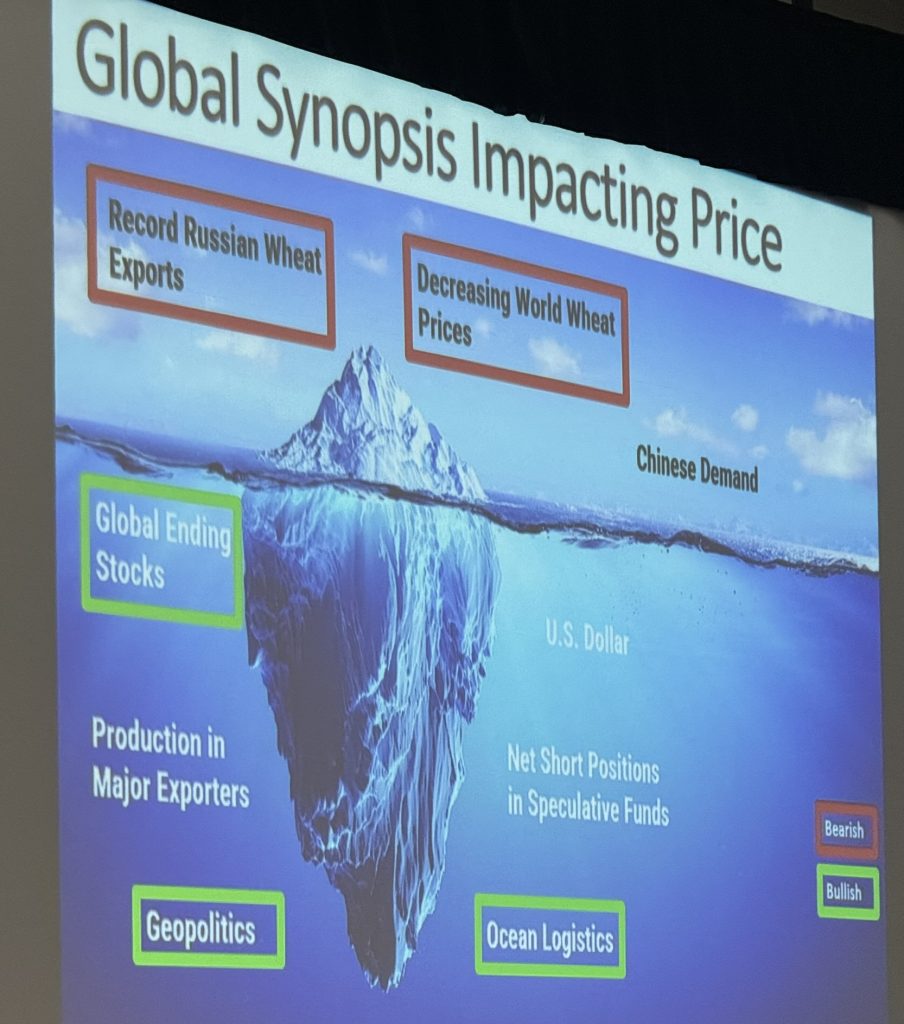
At the OCIA/OGI Meeting in Oklahoma City, Oklahoma Farm Reporter Maci Carter had the chance to talk with the Director of the Oklahoma Wheat Commission, Mike Schulte, about his priorities for 2024.
“The OCIA, Oklahoma Genetics Incorporated annual meeting is really a priority because I think it allows us to kick start things off for the year and let producers know what we are doing in regards to research and innovation and the things we are working on with our research programs that the Oklahoma Wheat Commission is funding, and then the market development issues and priorities that we have moving into the future as we go into this year,” Schulte said.
As Oklahoma State University plays a large role in wheat breeding and genetic innovation across the state, Schulte said there had been a plethora of wheat varieties from the OSU research program over the last few years that have performed extremely well.
“If you look at USDA reports from last year, the top four wheat varieties in the state are OSU wheat varieties that are actually on planted acreage, and another three of those varieties actually made it up into the top nine,” Schulte said.
While producers in Oklahoma have their reliable favorites from OSU, Schulte said there has been an increase in production of newer varieties in the state as well, such as Showdown and OK Corral.

“Producers, when they are looking for varieties that are mainstays that are going to do well overall for specific regions in the Southern Plains, they do look at the OSU public research program, and we are excited about that,” Schulte said. “I do think that Dr. Carver does have some things in mind to be released here in the future.”
Going forward, Schulte said he sees a focus on the consumer perspective and what Oklahoma wheat can offer to millers and bakers in regard to functionality and more.
“As we move forward, our goal is going to be providing wheat varieties that are still going to have those yields that producers want to put in the driver’s seat whenever they are growing in the field,” Schulte said.
To meet consumer demands, Schulte said work is being done on the domestic market to research health and wellness, high-fiber wheat, high-antioxidant wheat, and more. Schulte said today’s consumer is concerned with a clean label and knowing where their product comes from, so moving forward, providing those consumers with what they desire is a top priority.
“We have been doing a lot of work with the Oklahoma Academy of Registered Dieticians in the state by bringing them on research tours at the research farms at Oklahoma State University, following everything from drill to mill in that aspect, and then also taking them into the end-use quality application process at the Food and Ag Products Center at Oklahoma State University and showing them how millers and bakers make their decisions in large-scale industry settings to be able to provide a safe and consistent food supply,” Schulte said.
Right now, as far as production goes, Schulte said things are looking favorable for the 2024 winter wheat crop.
“I don’t want to get ahead of myself, but it looks much different in the field today than it did two years ago at this time because we were in a long-term drought,” Schulte said.

Schulte also talked about headwinds in the wheat industry regarding wars in the Middle East, transportation issues, the upcoming election, and more. Click the listen bar above the story to hear the full conversation!

















